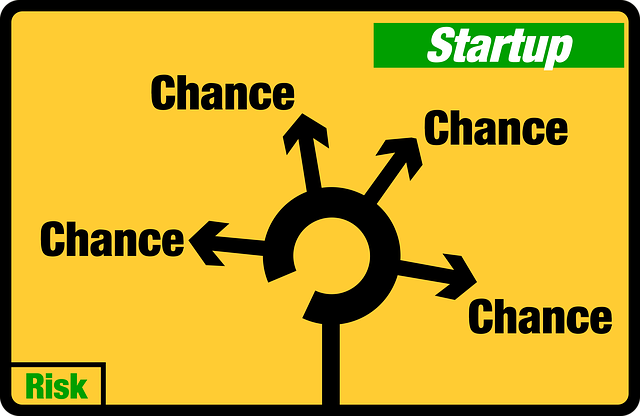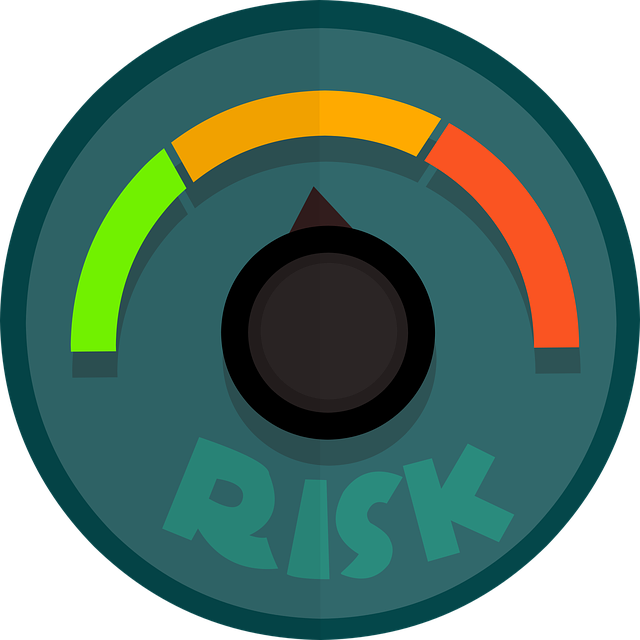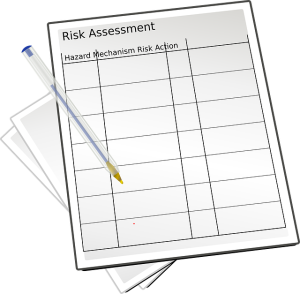UK-based organizations frequently need precise translations of their risk assessment reports for international collaboration and compliance. Specialized UK translation services are instrumental in this process, offering expert handling of both language intricacies and industry-specific terminology to ensure the accuracy and relevance of translated content. These services employ a combination of advanced machine learning algorithms and human expertise to manage cultural nuances and technical details, providing stakeholders with informed decision-making confidence while maintaining the integrity of the original documents. By utilizing robust verification processes and leveraging bilingual reviewers proficient in risk assessment protocols, these translation services enable organizations to effectively communicate their risk evaluations on a global scale, thereby facilitating safe and compliant international operations. The precision and cultural appropriateness offered by UK translation services are critical for the successful localization of risk assessment reports worldwide.
Navigating the complexities of risk evaluation is a critical task within the UK’s health, safety, and environmental sectors. As organizations increasingly operate on an international scale, the necessity for clear and accurate translations of Risk Assessment Reports becomes paramount. This article delves into the intricacies of translated UK risk evaluation documents, emphasizing the role of professional translation services in overcoming linguistic barriers. We explore the common challenges faced when converting technical reports into different languages, the strategies that ensure effective communication of risks, and the cultural nuances that can influence translation accuracy. By examining key considerations for precise technical translations and showcasing successful case studies within the UK context, this piece underscores the importance of selecting specialized UK translation services to maintain clarity and reliability in risk assessments across languages.
- Overview of Risk Assessment in the UK Context
- The Importance of Accurate Translations for Risk Evaluation Documents
- Common Challenges in Translating Risk Assessment Reports
- The Role of Professional UK Translation Services in Ensuring Clarity
- Key Considerations for Precise Technical Translations in Risk Assessments
- Strategies for Effective Communication of Risks Across Languages
- Cultural Nuances and Their Impact on Translated Risk Evaluation Documents
- The Process of Verifying the Accuracy of Translated Risk Reports
- Case Studies: Successful Risk Assessment Translation Projects in the UK
Overview of Risk Assessment in the UK Context

In the United Kingdom, risk assessment is a systematic approach that organisations across various sectors, including healthcare, manufacturing, and finance, employ to evaluate potential hazards within their operations. This process is critical for safeguarding employees, customers, and the environment from harm. The Health and Safety Executive (HSE) provides clear guidelines on conducting risk assessments in the UK, ensuring compliance with legal requirements. These assessments are not only a statutory requirement but also serve as a foundation for prioritising safety measures and informing health and safety policies.
The translation of risk assessment reports into different languages is a complex task that requires specialized UK translation services to maintain accuracy and clarity. The nuances in language, legal terminology, and the context-specific nature of these documents necessitate professional translators who are not only fluent in the source and target languages but also well-versed in the relevant regulatory framework. Utilising expert UK translation services ensures that the essence of the original risk assessment reports is preserved without dilution or misinterpretation, thereby maintaining the integrity of the information conveyed and its intended use in international settings. This meticulous approach to translation is indispensable for organisations operating globally, as it bridges communication gaps and facilitates a shared understanding of risks across different cultures and languages.
The Importance of Accurate Translations for Risk Evaluation Documents

When organisations operate across borders, the accuracy and clarity of risk assessment reports become paramount. The stakes are particularly high in industries where safety and regulatory compliance are non-negotiable. In the UK, these reports often require translation to communicate critical information to a global audience. Here, the role of professional UK translation services cannot be overstated. Precision in translation is not just about conveying words from one language to another; it’s about ensuring that the nuances and technicalities of risk evaluation are accurately interpreted and understood by all stakeholders involved. This is where trusted UK translation services excel, providing meticulous translations that bridge cultural and linguistic barriers without compromising on the integrity of the original content. For businesses dealing with health and safety, environmental impact, or financial risk assessments, the implications of a mistranslation can be severe, potentially leading to operational failures, legal issues, or reputational damage. Therefore, leveraging expert UK translation services for risk assessment reports is an indispensable step in maintaining compliance, ensuring consistency, and safeguarding all parties concerned.
Common Challenges in Translating Risk Assessment Reports

Translating Risk Assessment Reports from the UK into other languages presents unique challenges that require specialized attention from UK translation services. The technical nature of risk assessment terminology necessitates a deep understanding of both the source and target languages, as well as the specific domain’s jargon. Cultural nuances must be carefully considered to ensure that the translated content maintains its original intent and meaning, which is crucial for health and safety compliance across different jurisdictions. Language service providers specializing in UK translation services must stay abreast of local regulations and standards to accurately convey the necessary warnings, procedures, and protocols. This is particularly significant when translating between languages with significantly different grammatical structures or vocabulary complexity, such as from English to Japanese or Chinese, where a word-for-word translation can lead to misunderstandings or misinterpretations of risk levels and safety measures.
Moreover, the context in which risk assessment information is used must be preserved across translations. For instance, the interpretation of certain terms or the classification of hazards can vary between cultures, potentially leading to different risk evaluations. UK translation services must employ skilled linguists with expertise in risk management and knowledge transfer to bridge these gaps effectively. The use of specialized translation memory software and glossaries tailored to risk assessment terminology further supports the provision of accurate and consistent translations. This not only aids in legal compliance but also ensures that stakeholders, regardless of their language proficiency, can make informed decisions based on precise and reliable risk information.
The Role of Professional UK Translation Services in Ensuring Clarity

When it comes to risk assessment reports in the UK, clarity is paramount for accuracy and safety across various industries. The role of professional UK translation services is crucial in this context, as they facilitate the precise conveyance of critical information in different languages. These services employ expert linguists who are not only proficient in language nuances but also well-versed in industry-specific terminology, ensuring that the essence and technical details within risk assessment reports are preserved without loss or misinterpretation. This expertise is essential for maintaining standards and compliance across international borders, where the stakes can be high, from health and safety regulations to financial and legal obligations. By offering meticulous translation services, these providers help organisations to communicate effectively with stakeholders worldwide, thereby mitigating potential risks associated with language barriers. The end result is a transparent document that upholds the integrity of the original report, allowing for informed decision-making by all parties involved.
Key Considerations for Precise Technical Translations in Risk Assessments

When undertaking risk assessment reports for UK entities, precision in technical translations is paramount. The nuances of language, particularly within specialized documentation, can significantly impact the accuracy and effectiveness of the evaluation. To mitigate this, it is crucial to engage with translation services that specialize in the field, ensuring they possess a deep understanding of both the source and target languages, as well as the technical lexicon specific to risk assessment. These UK translation services must be adept at capturing the subtleties of terminology and context that are essential for maintaining the integrity of the original content. This is not merely a matter of linguistic transfer but involves a thorough comprehension of industry-specific standards, regulations, and practices. The translator’s role goes beyond word-for-word translation; it encompasses a transformative process where complex scientific, technical, or business concepts are accurately conveyed in the target language. This commitment to precision ensures that the translated risk assessment reports are reliable, actionable, and reflective of the original documents’ intent, thus enabling stakeholders to make informed decisions with confidence.
Strategies for Effective Communication of Risks Across Languages

Effective risk assessment reports are indispensable for organizations operating in multilingual environments, particularly within the UK context. To ensure clarity and accuracy across different languages, it is imperative to employ robust translation strategies. UK translation services that specialize in technical and specialized documentation can leverage advanced translation technology, such as machine learning algorithms and human expertise, to provide precise translations. These services often incorporate glossaries and style guides tailored to industry-specific terminology, thereby reducing the risk of miscommunication due to linguistic nuances or cultural differences. By implementing a rigorous quality assurance process, including peer reviews and expert revisions, these translation services can guarantee that the meaning and intent of the original risk assessment reports are preserved in the target language. This meticulous approach not only aids in decision-making processes but also enhances the safety and compliance of international operations for UK-based enterprises.
In the process of translating risk assessment reports, it is crucial to maintain consistency in terminology and numerical data representation across all translated documents. This consistency is key to ensuring that stakeholders, regardless of their linguistic background, can comprehend the potential risks and make informed decisions based on the information provided. UK translation services with a specialized focus can facilitate this understanding by deploying multilingual risk assessment experts who review the translations for technical accuracy and context relevance. Additionally, these services often provide cultural adaptation, ensuring that idiomatic expressions or sensitive information is conveyed appropriately in the target language, further bolstering the clarity of risk evaluation documents for a global audience.
Cultural Nuances and Their Impact on Translated Risk Evaluation Documents

When translating risk assessment reports from the UK to other languages, it is imperative to account for cultural nuances to maintain accuracy and relevance. Translated documents must reflect not only the literal meaning of the original text but also its intended context and implications. UK translation services that specialize in risk evaluation documentation are trained to recognize cultural subtleties that could skew interpretations. For instance, certain terms or phrases may carry different connotations within the UK’s diverse socio-cultural fabric than in the target language, potentially altering the perceived level of risk. This can have significant implications for stakeholders who rely on accurate assessments for decision-making processes. A careful approach is necessary to ensure that the translation captures not only the data and findings but also the cultural undertones that influence how risks are understood and managed in different regions. Utilizing expert translators with a deep understanding of both the source and target cultures, as well as the technical language used in risk assessment reports UK translation services provide, is crucial for conveying the nuanced message effectively across linguistic and cultural boundaries.
The Process of Verifying the Accuracy of Translated Risk Reports

In the realm of risk assessment, maintaining precision and clarity is paramount when translating reports from UK to other languages. The process of verifying the accuracy of translated risk reports hinges on a combination of advanced translation technology and meticulous human oversight. UK translation services employ native linguists with expertise in risk management to ensure that every technical term, quantitative analysis, and nuanced recommendation is faithfully conveyed in the target language. This dual approach not only upholds the integrity of the original report but also ensures that stakeholders across different linguistic boundaries can make informed decisions based on the translated content. The verification process typically involves a two-step procedure: first, using computer-aided translation (CAT) tools to provide an initial accurate translation; then, subjecting these translations to a human reviewer who is fluent in both the source and target languages and knowledgeable about risk assessment protocols. This step is crucial for capturing context-specific subtleties that machine translation alone may miss. By leveraging the expertise of UK translation services, organizations can navigate the complexities of global communication with confidence, ensuring that their risk assessment reports are both accurate and accessible to a wide audience.
Case Studies: Successful Risk Assessment Translation Projects in the UK

UK-based organisations frequently engage in international collaborations that necessitate the translation of risk assessment reports. Two notable case studies exemplify the successful translation of such documents by UK translation services. In one instance, a multinational corporation underwent a merger with a European firm, requiring a comprehensive review of safety protocols and risk assessments. The translated documents, meticulously handled by a specialist translation agency, ensured that all stakeholders had an accurate understanding of the potential hazards and mitigation strategies. This led to a harmonious integration of the two entities’ operations and adherence to local regulations without compromising safety standards.
Another case study involves a UK-based nonprofit that focused on environmental conservation, which needed to communicate its risk assessments to various international partners. The accuracy of the translations was paramount, as they were to be used in the planning of sensitive ecological projects. By utilizing professional UK translation services, the nonprofit successfully communicated the necessary precautions and safety measures, facilitating the execution of projects across diverse geographical locations. Both cases underscore the importance of precise and culturally nuanced translations when dealing with risk assessment reports in a global context. The use
In conclusion, risk assessment reports are a critical component of decision-making processes within the UK, particularly where multilingual communication is involved. The importance of accurate translations by specialized UK translation services cannot be overstated—it safeguards the integrity of the original content and ensures that all stakeholders have a clear understanding of the risks at hand. The challenges inherent in this process, including navigating cultural nuances and technical jargon, require a tailored approach to maintain precision and clarity. By adhering to best practices for translation and employing robust verification processes, risk assessment reports can be effectively conveyed across languages, facilitating informed decisions and safer outcomes. The case studies highlight the successful applications of these strategies, underscoring the value of professional UK translation services in this specialized field.
